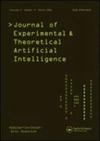基于深度学习YOLO-v2的实时无人机人体检测
IF 1.7
4区 计算机科学
Q3 COMPUTER SCIENCE, ARTIFICIAL INTELLIGENCE
Journal of Experimental & Theoretical Artificial Intelligence
Pub Date : 2021-04-01
DOI:10.1080/0952813X.2021.1907793
引用次数: 24
摘要
人工智能(AI)领域的最新进展为创造自主设备、机器人和机器提供了机会,这些设备的特点是能够在没有人工干预的情况下做出决策和执行任务。其中一种设备,无人驾驶飞行器(uav)或无人机被广泛用于执行监视,搜索和救援,目标检测和目标跟踪等任务。特别是随着无人机在各个领域的应用越来越广泛,对航拍视频中高效的实时目标检测是一个迫切的需求。执行上述任务的敏感性要求无人机必须高效可靠。本文介绍了基于无人机摄像机的卷积神经网络(CNN) YOLO-v2在人的识别和检测中的应用开发的研究进展。人的位置和状态由基于深度学习的计算机视觉确定。人的检测结果表明,YOLO-v2对目标的检测和分类具有较高的准确率。对于实时跟踪,跟踪算法的响应速度比传统方法更快,有效地跟踪被检测的人,而不会使其从视线中消失。本文章由计算机程序翻译,如有差异,请以英文原文为准。
Human detection based on deep learning YOLO-v2 for real-time UAV applications
ABSTRACT Recent advancements in the field of Artificial Intelligence (AI) have provided an opportunity to create autonomous devices, robots, and machines characterised particularly with the ability to make decisions and perform tasks without human mediation. One of these devices, Unmanned Aerial Vehicles (UAVs) or drones are widely used to perform tasks like surveillance, search and rescue, object detection and target tracking, and many more. Efficient real-time object detection in aerial videos is an urgent need, especially with the increasing use of UAV in various fields. The sensitivity in performing said tasks demands that drones must be efficient and reliable. This paper presents our research progress in the development of applications for the identification and detection of person using the convolutional neural networks (CNN) YOLO-v2 based on the camera of drone. The position and state of the person are determined with deep-learning-based computer vision. The person detection results show that YOLO-v2 detects and classifies object with a high level of accuracy. For real-time tracking, the tracking algorithm responds faster than conventionally used approaches, efficiently tracking the detected person without losing it from sight.
求助全文
通过发布文献求助,成功后即可免费获取论文全文。
去求助
来源期刊
CiteScore
6.10
自引率
4.50%
发文量
89
审稿时长
>12 weeks
期刊介绍:
Journal of Experimental & Theoretical Artificial Intelligence (JETAI) is a world leading journal dedicated to publishing high quality, rigorously reviewed, original papers in artificial intelligence (AI) research.
The journal features work in all subfields of AI research and accepts both theoretical and applied research. Topics covered include, but are not limited to, the following:
• cognitive science
• games
• learning
• knowledge representation
• memory and neural system modelling
• perception
• problem-solving

 求助内容:
求助内容: 应助结果提醒方式:
应助结果提醒方式:


